Fashion Design Drawing Course Book Free Download
Introduction:
Our BA (Hons) Fashion Design course has an established reputation, with exceptional national and international links within the fashion Industry, as well as a recognised global presence.
NTU fashion graduates are renowned within the industry for their creative, innovative and directional design skills, as well as a strong underlying awareness of commerciality, sustainability and technologies.
Key features
- You'll have the opportunity to complete a work experience placement of up to a year in length. Dependent on the duration of your placement, you could gain an additional Diploma or Certificate in Professional Practice.
- Get involved with competitions and live projects with companies like Oasis, Boohoo, Mulberry, ASOS, River Island and Burberry.
- We're ranked 18th in the UK for Fashion and Textiles (The Guardian University Guide 2022).
- Benefit from guest lecturers such as Giles Deacon, Christopher Raeburn, and internationally renowned Japanese pattern cutting expert Shingo Sato.
- During your time here, you will be given the opportunity to showcase your work to members of the creative industries. You can view our graduating students' showcase here.
- There is an opportunity to be nominated for the Sarabande Foundation: Lee Alexander McQueen scholarship.
- Go on optional international study trips to events like Paris Fashion Week.
- Opportunity to apply for a European or international exchange to one of our partner institutions, including the Fashion Institute of Technology in New York, Hong Kong Polytechnic University, and more.
- We are proud to be ranked 13th in the UK for Art and Design (QS World University Rankings by Subject 2021).
- You'll study in our lively and highly creative fashion studios based in the Bonington building. View our School of Art & Design Facilities Hub here.
Student work
-
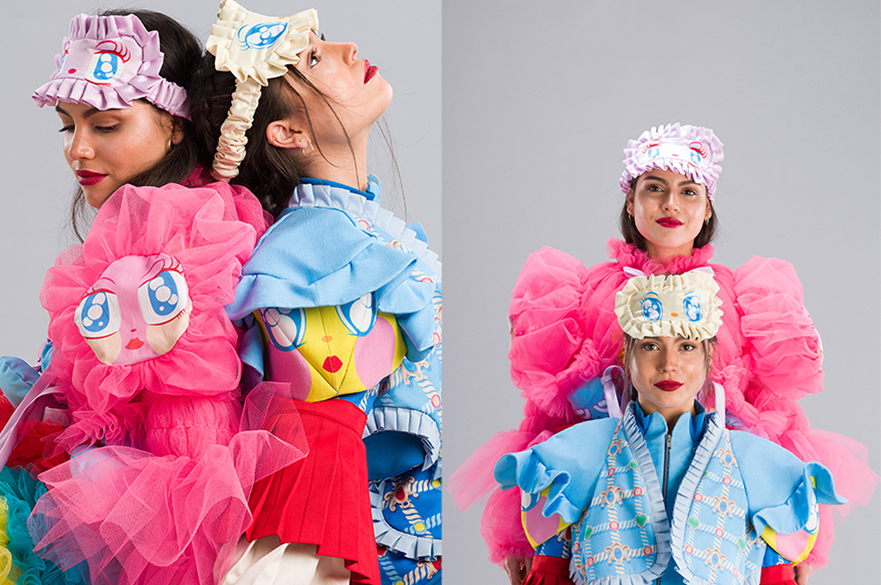
Womenswear collection by JD Dongyeon Cho
-
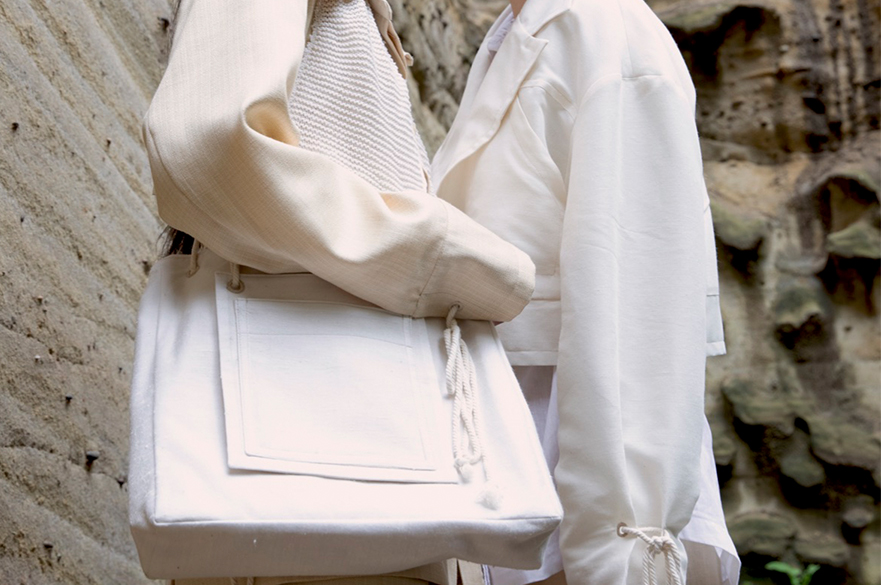
-
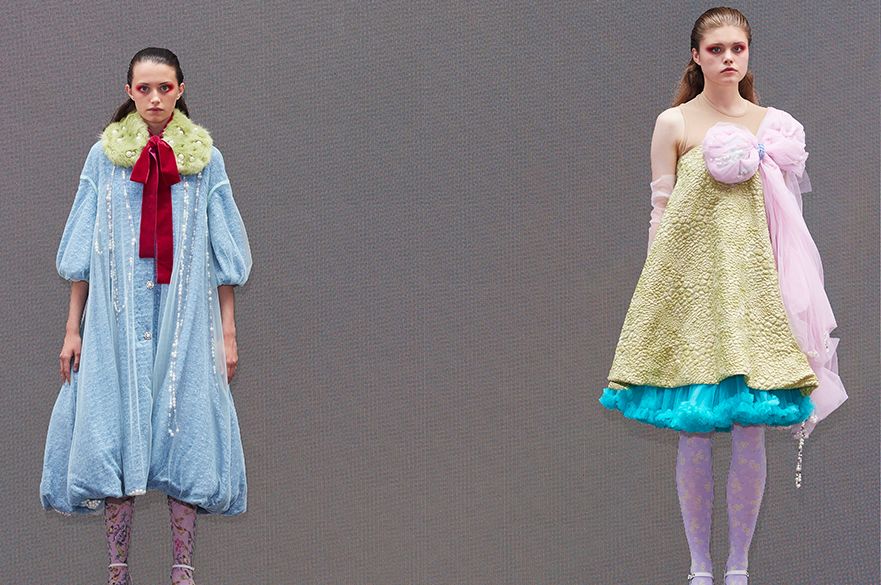
Final collection by Lucy Waters
-

Final collection by Rebecca Lennox
-
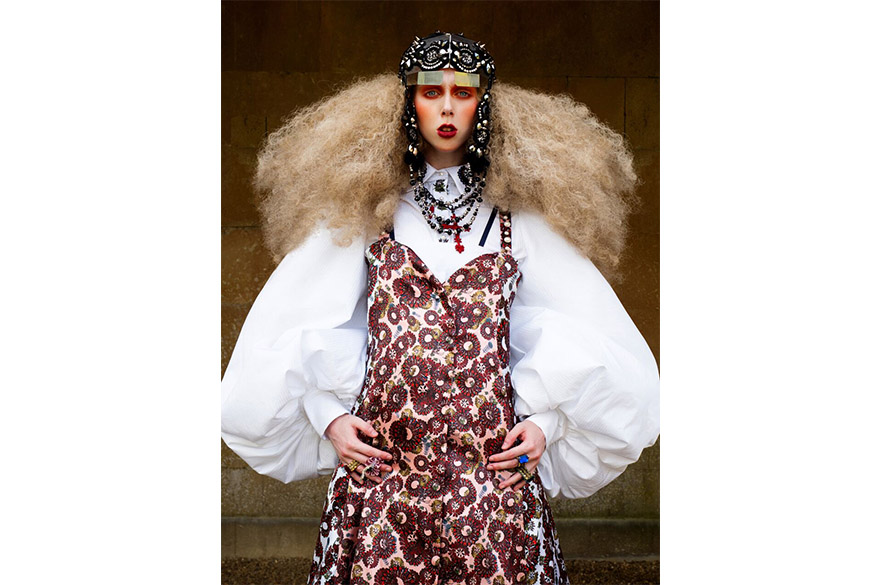
Final collection by Rebecca Lennox
-
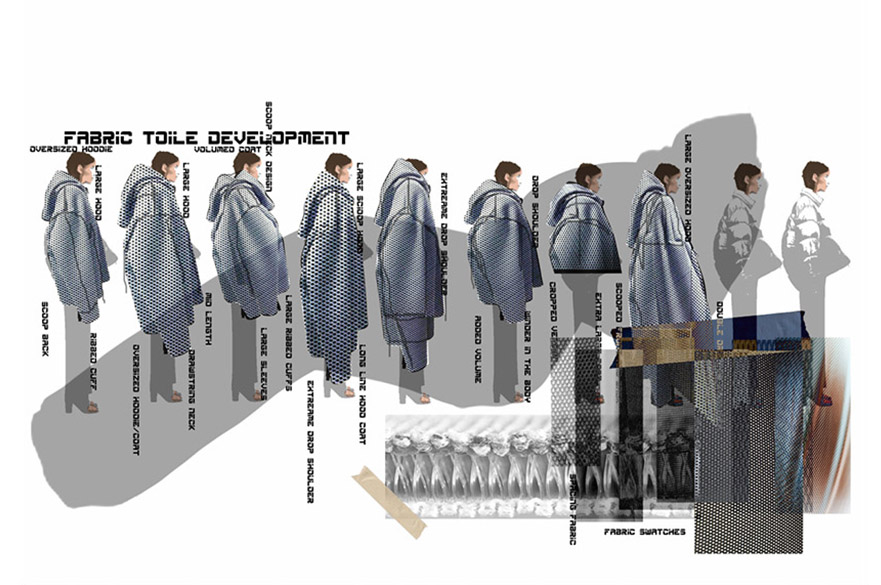
Madison Raynor - Womenswear collection
-
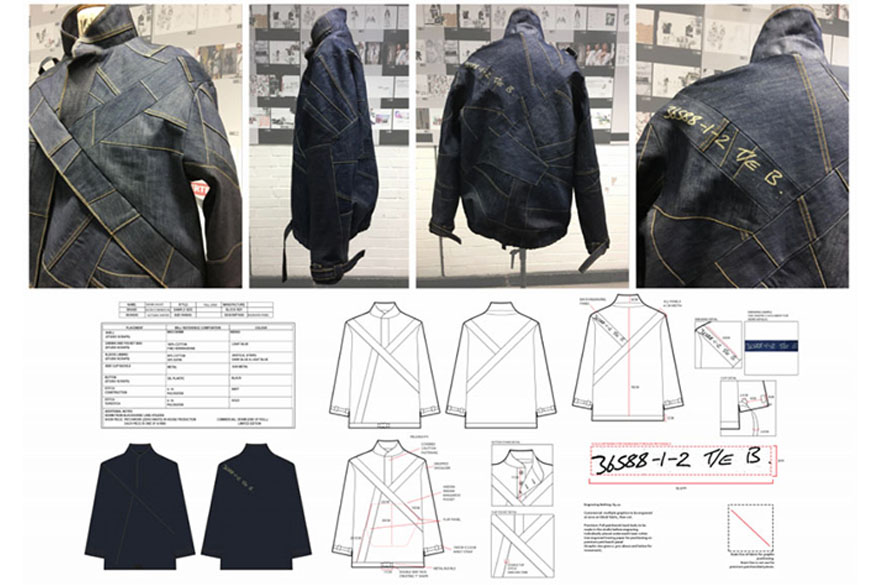
Henry McCreedy - Menswear collection
-
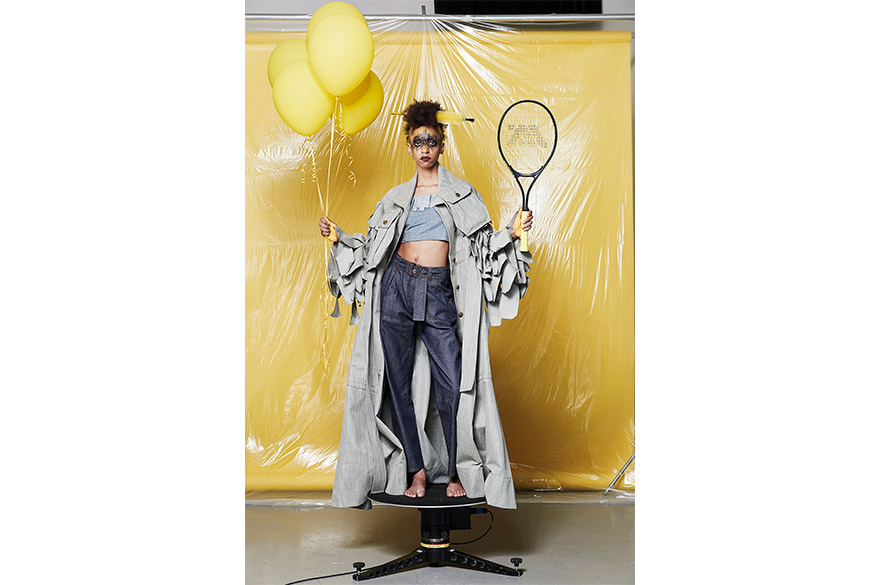
Isabel Hambly- Graduate Fashion Week, ISKO denim outfit
-
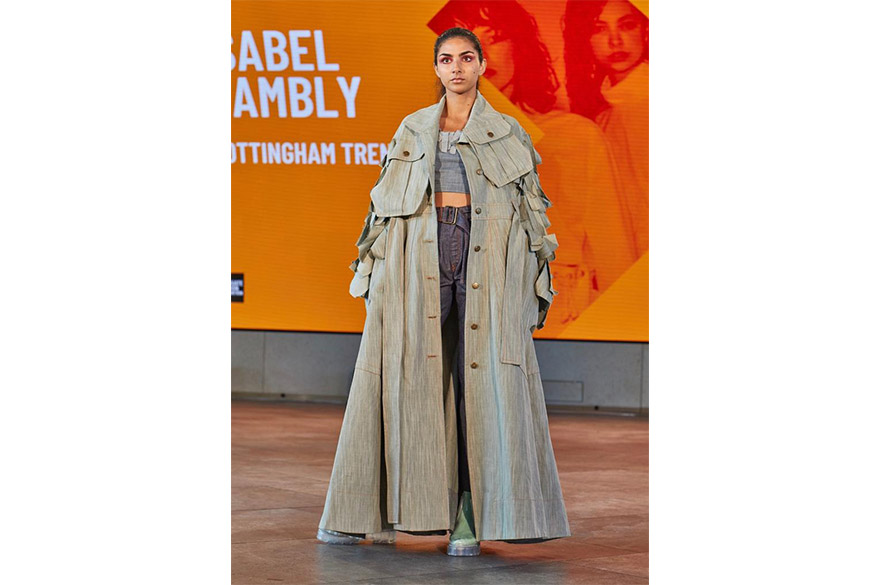
Isabel Hambly - Graduate Fashion Week
-

Final collection by Takato Wako
-
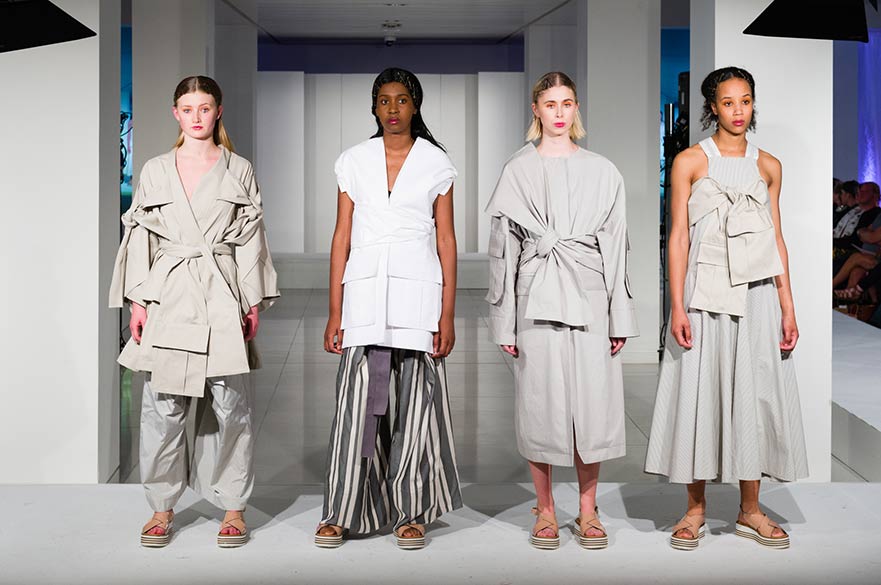
Final collection by Molly Dilks
-
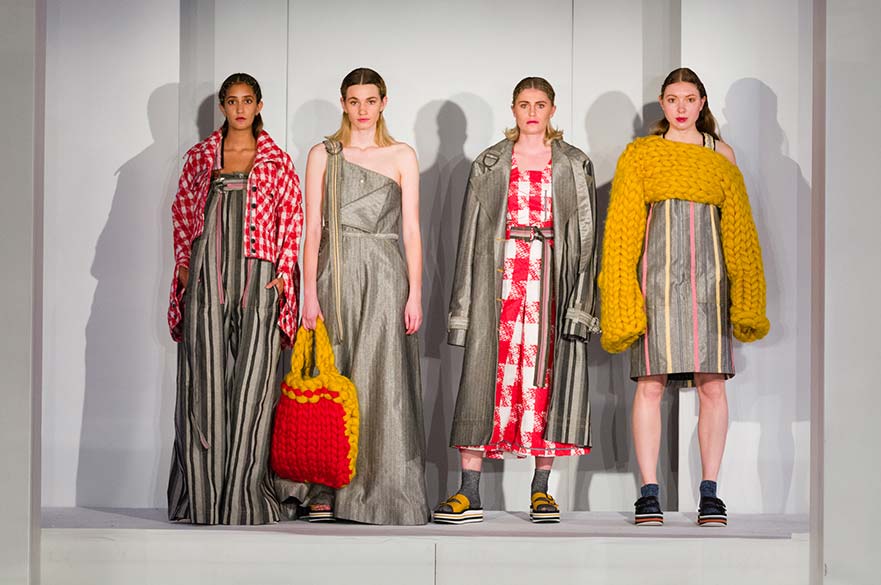
Final collection by Holly Hainsworth
-
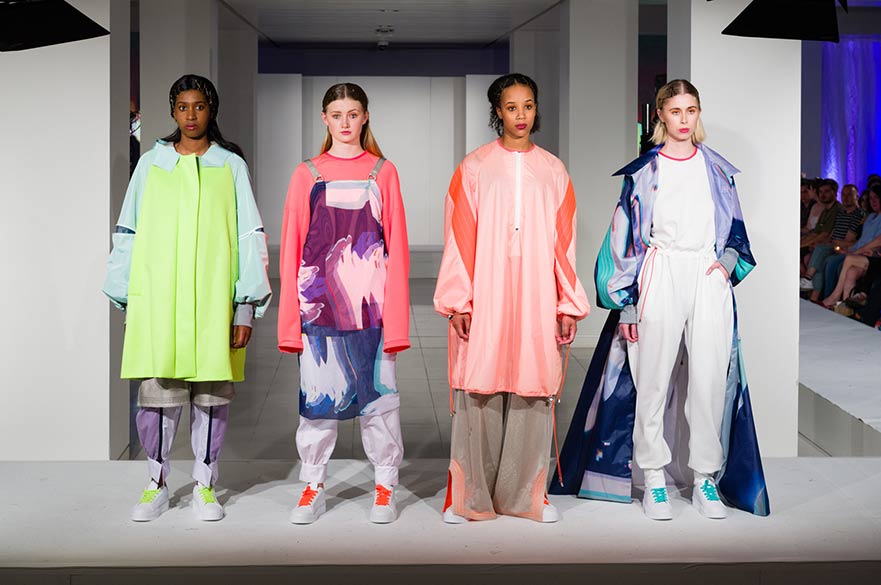
Final collection by Jun Zhu
-
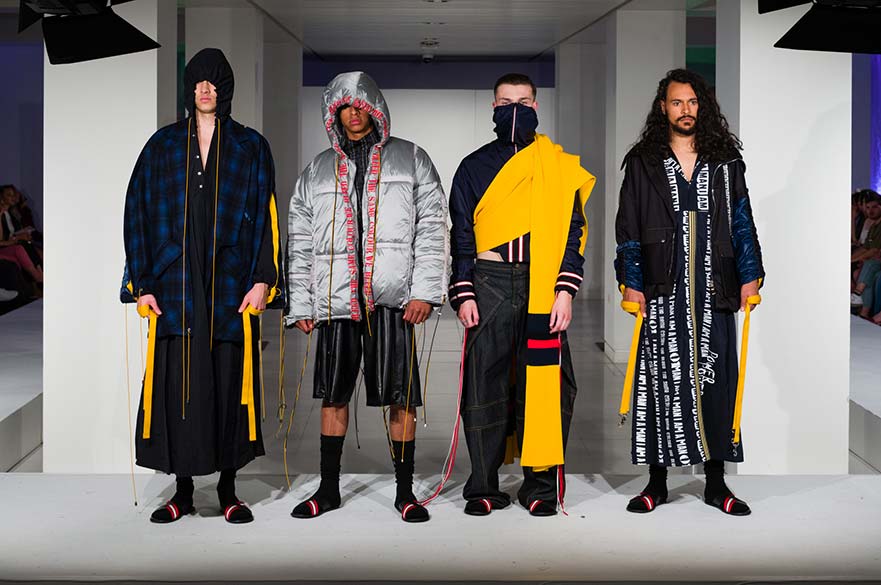
Final collection by Haleema Naseer, 2018
-
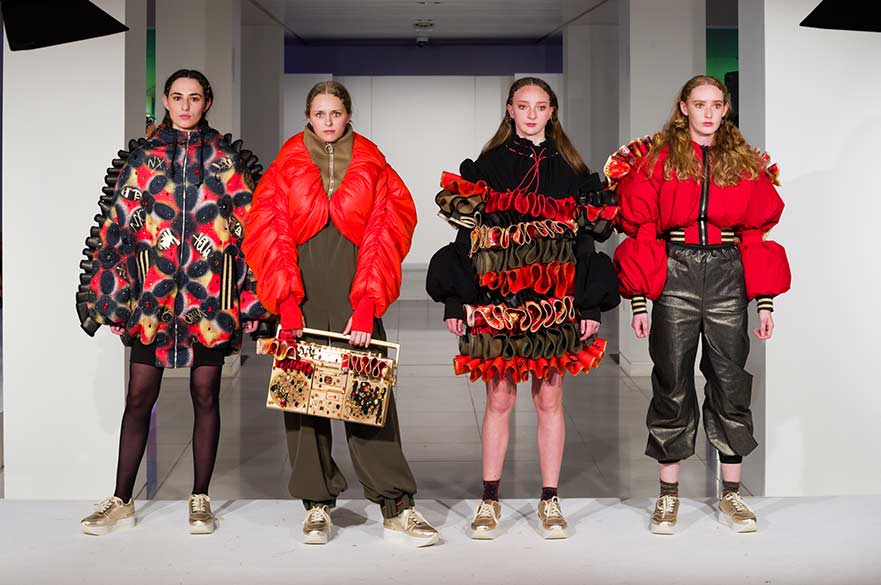
Final collection by Despina Chatzidaki
-
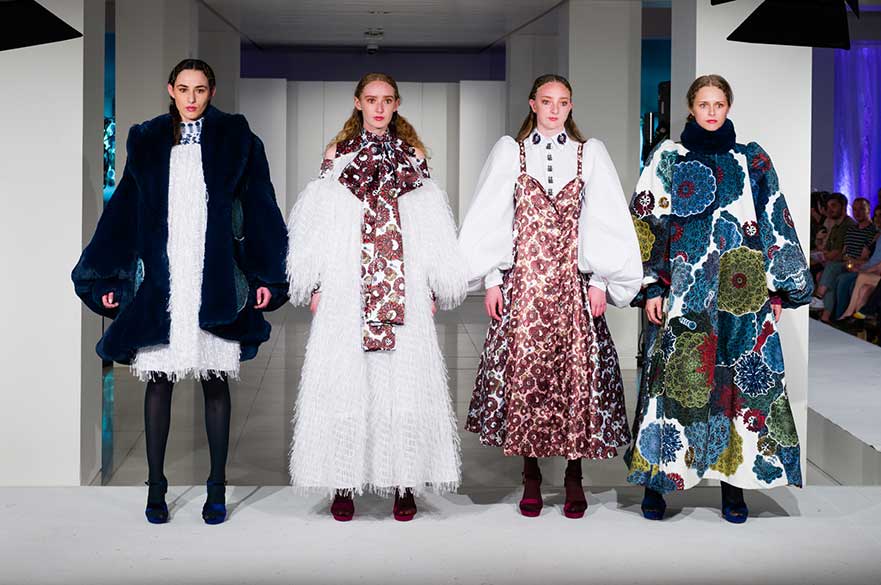
Final collection by Rebecca Lennox
-
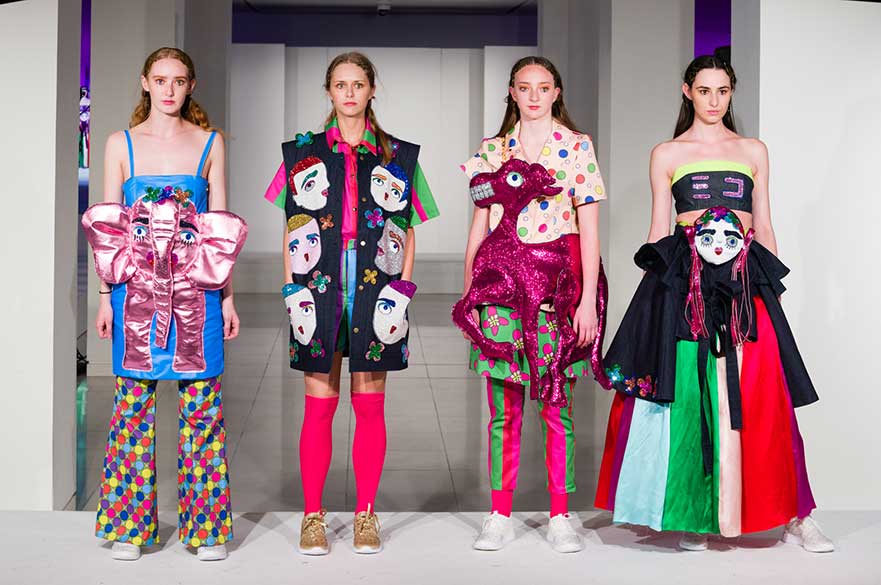
Final collection by Miko Komiya
-
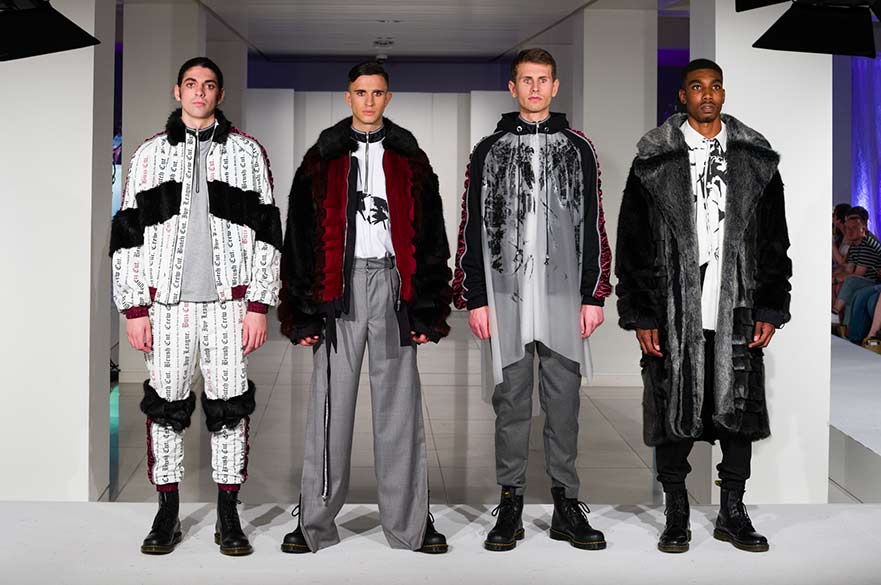
Final collection by Amber Osgood
-
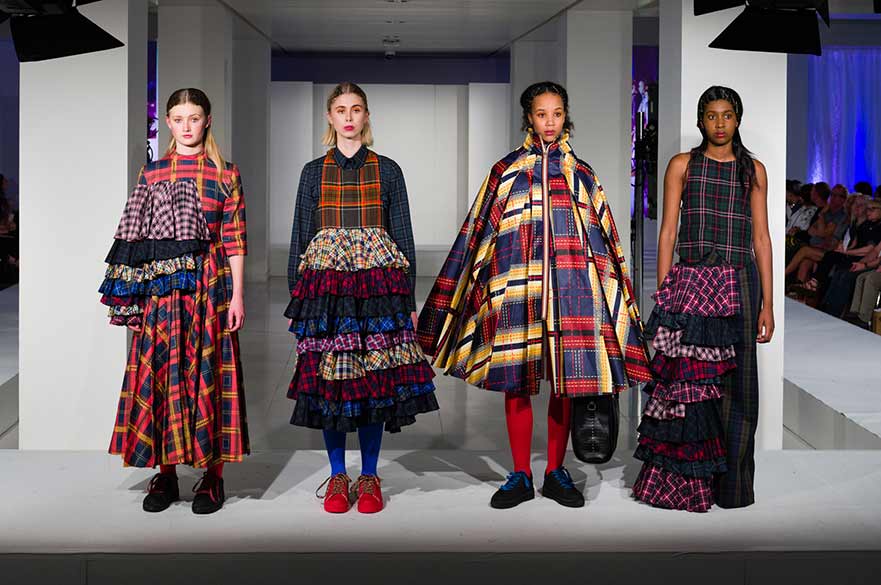
Final collection by Kirstie Johnston
-
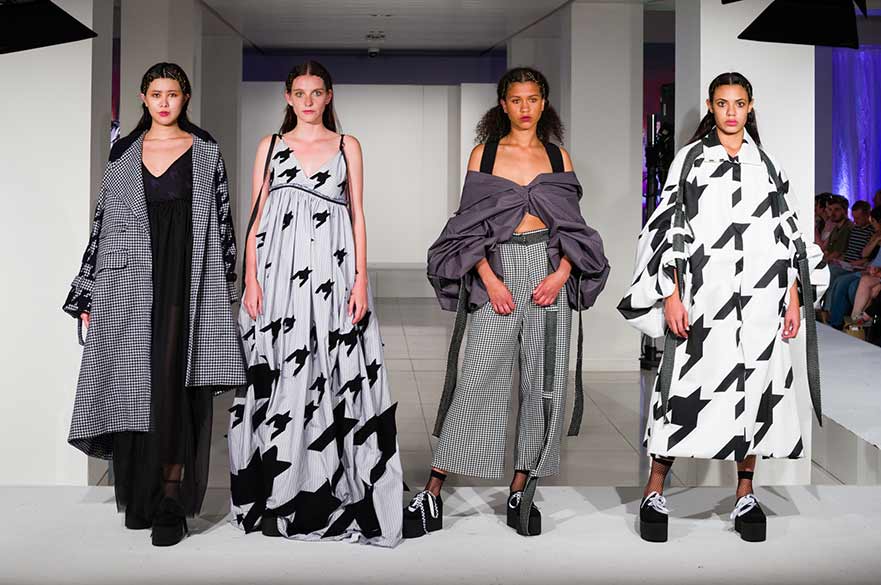
Final collection by Kate Martin
-

Final collection by Rochelle Mills
-
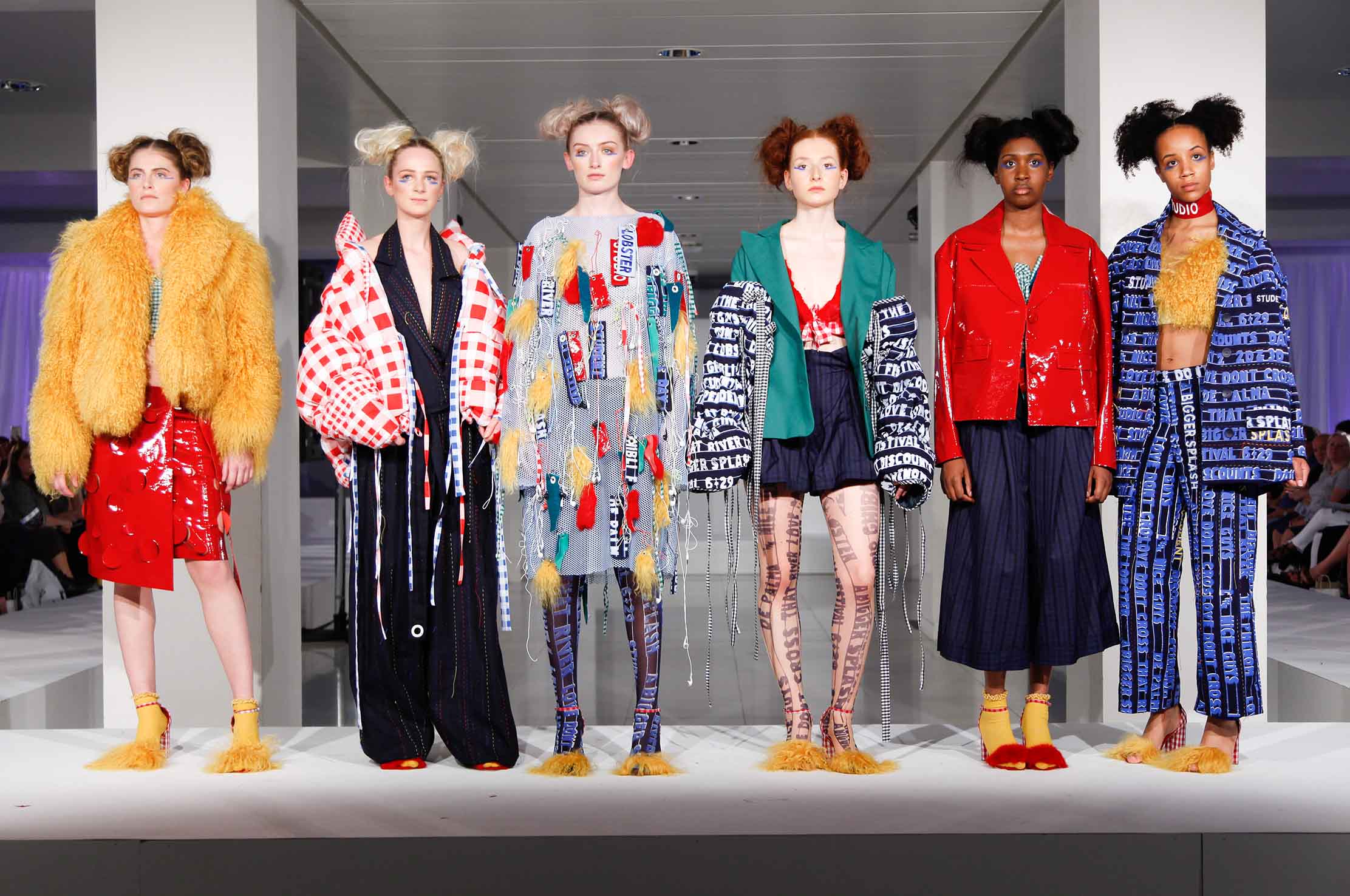
Final collection by Anna Gray
-
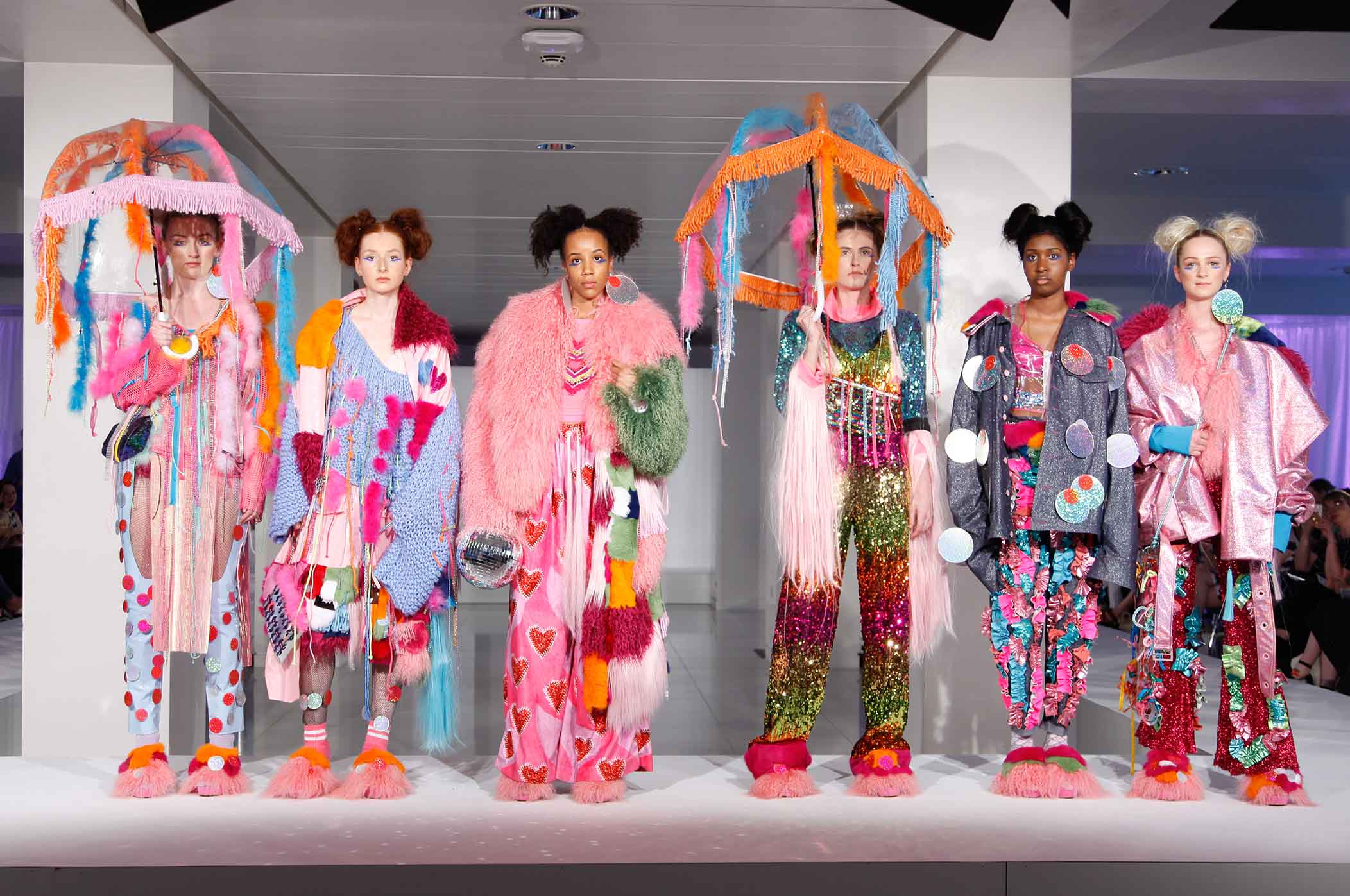
Final collection by Chloe Myrants-Wilson
-
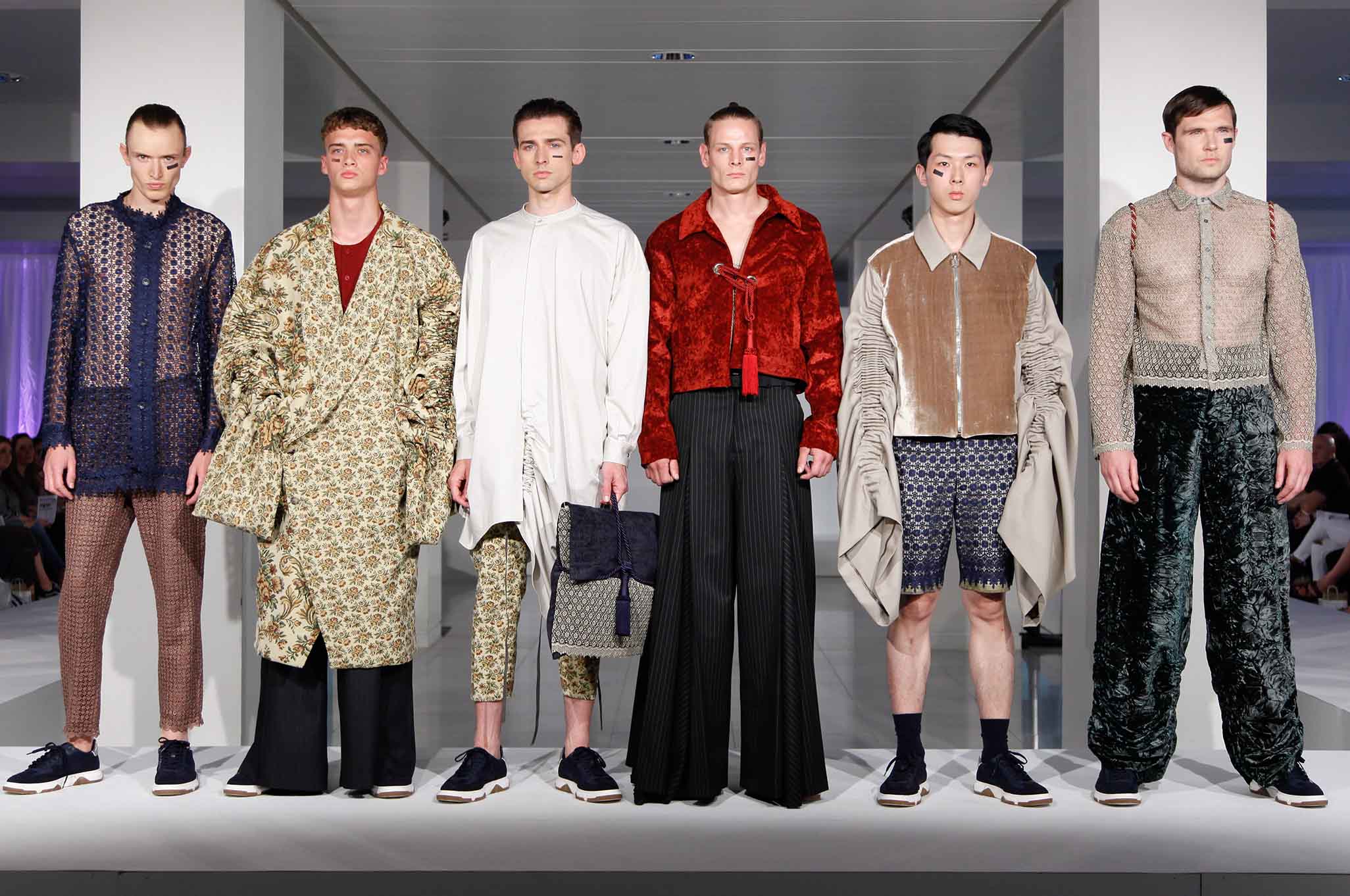
Final collection by Leanne Westbury
-
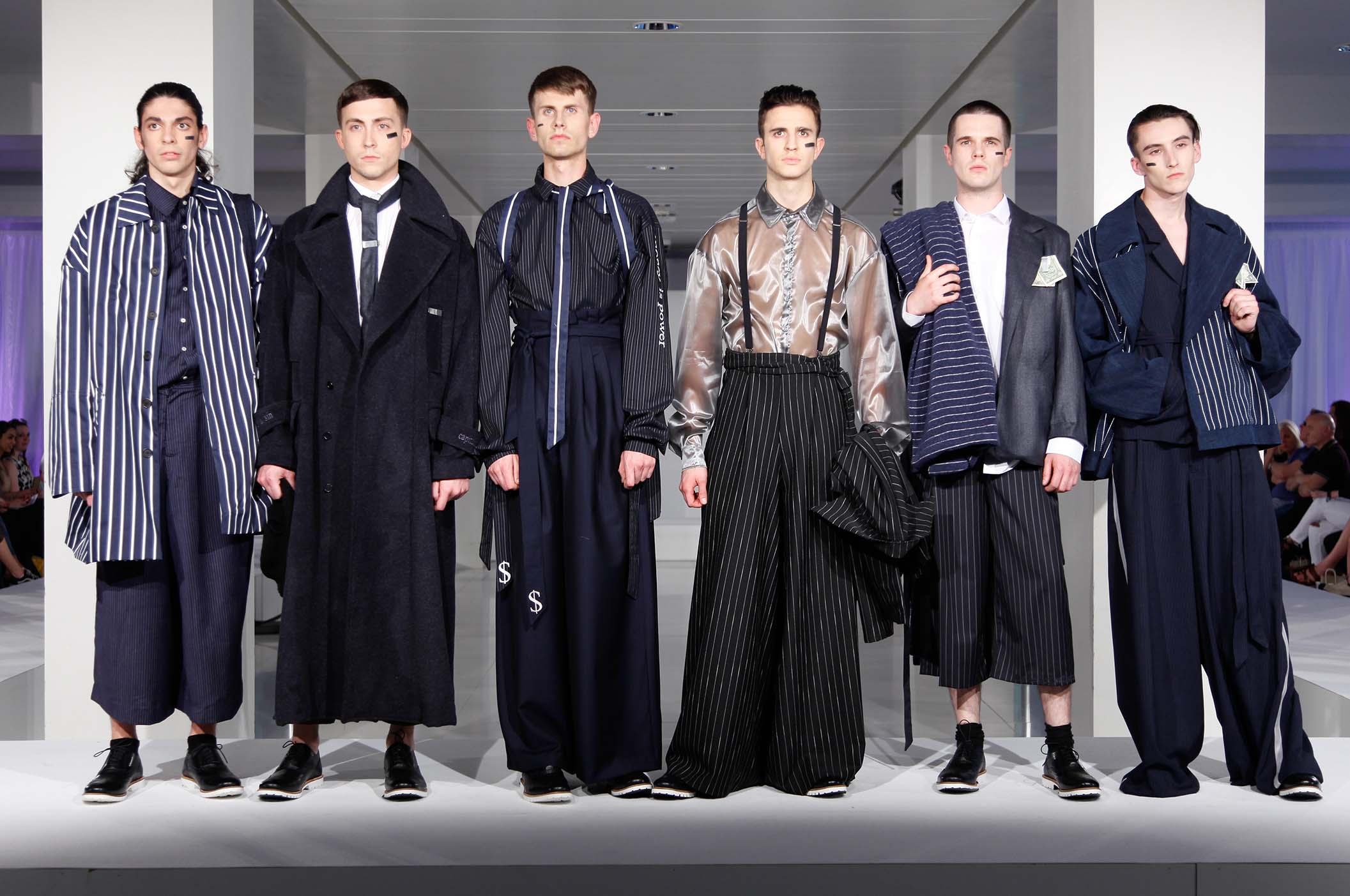
Final collection by Sarah Rafferty, previously runner up in Graduate Fashion Week's People's Choice Award
-
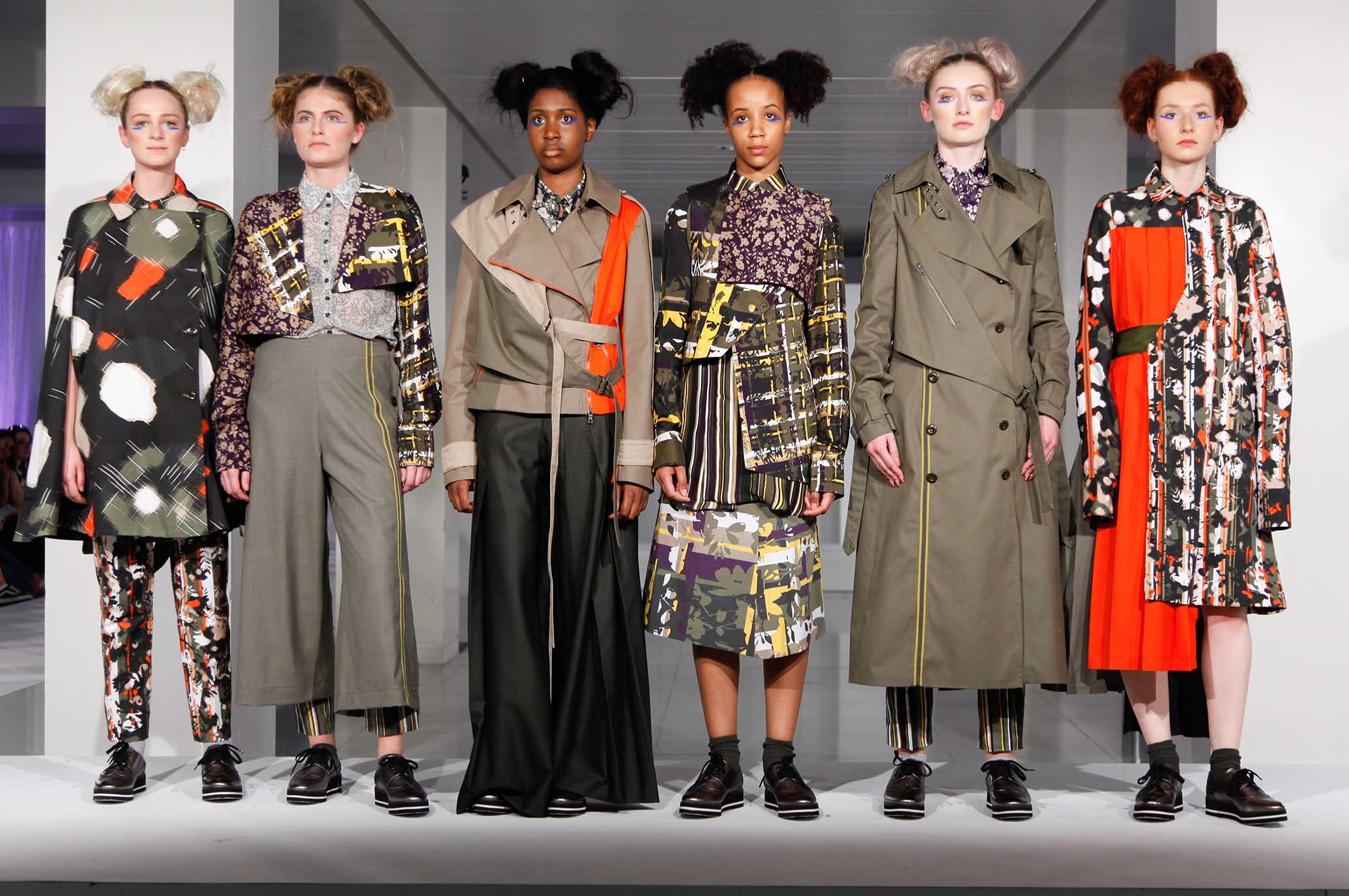
Final collection by Bethan Jacka
-
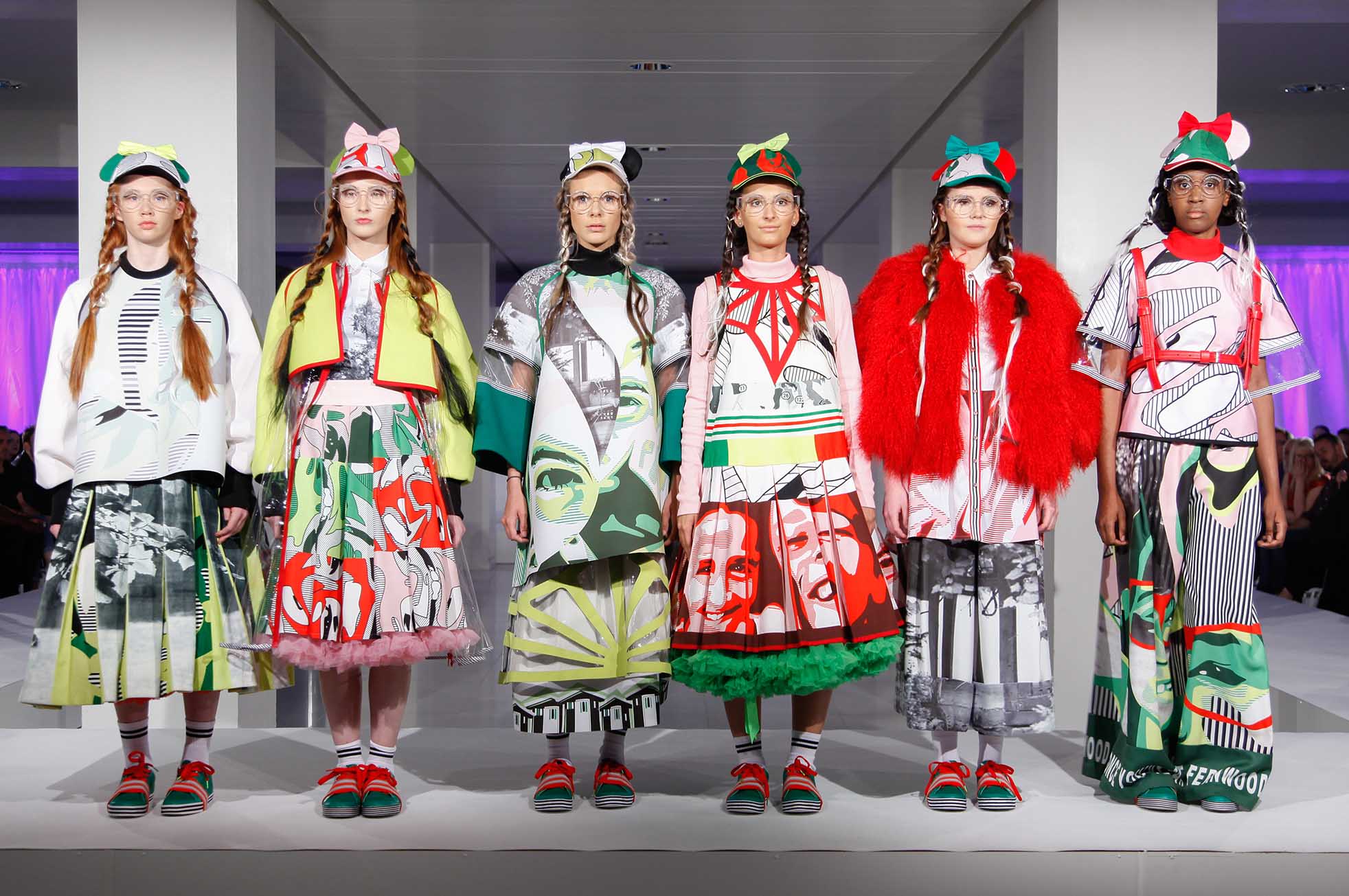
Final collection by Chloe Jackson, winner of the N Brown Textile Award and runner up in the David Band Textile Award at Graduate Fashion Week
-
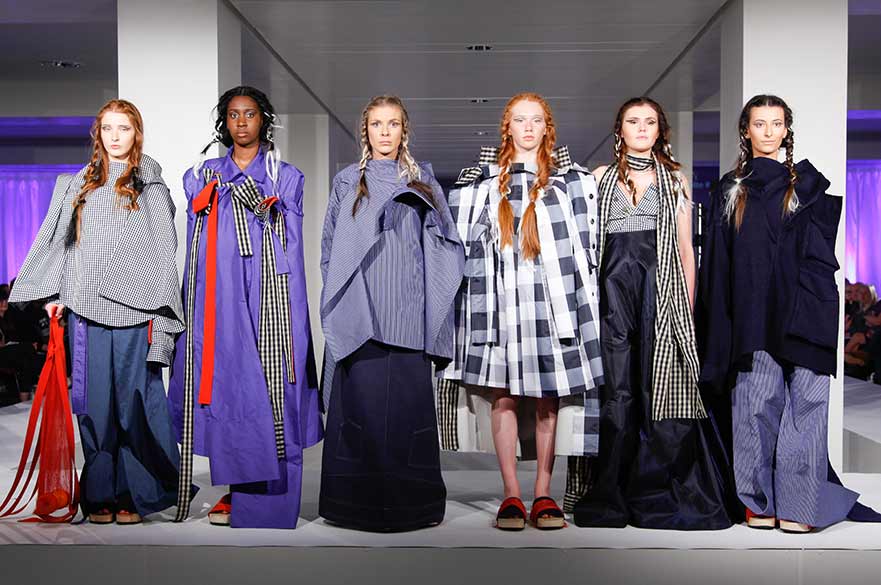
Work by Charlotte Rollings
-
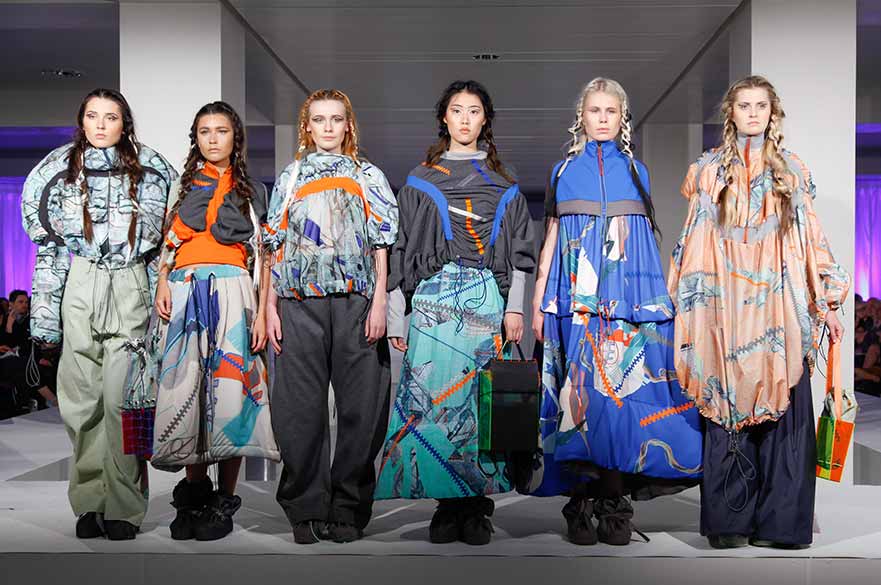
Final collection by Stacie Horton
-
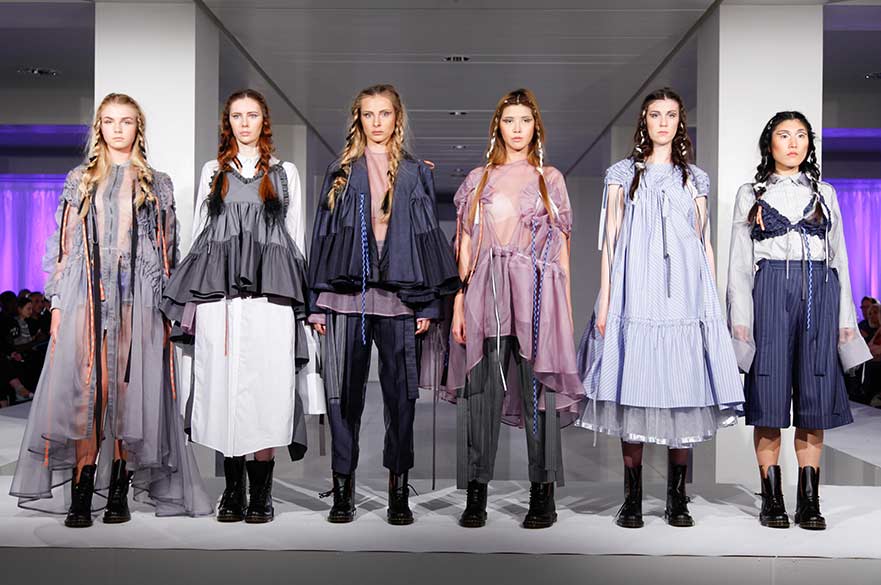
Final collection by Olivia Barclay
What you'll study
This course offers you a challenging and dynamic opportunity to develop the relevant skills and knowledge required to springboard you into the global fashion and related industries.
Through personalised and collaborative project work, you will learn to integrate research, design ideas, technology and theory to develop directional and contemporary fashion design concepts.
The curriculum reflects current industry practice and includes in-depth broad-ranging visual research / concept development, material awareness, design development, creative pattern cutting, garment manufacture, prototyping / product development, fashion drawing / illustration, visual communication, sustainability and future thinking.
- Year One
- Year Two
- Final year
Curiosity: Creative Exploration and Research
(40 credit points, full year)
This module explores core design components: concept, drawing, materials, colour and future thinking. You will be encouraged to question how fundamental aspects of design practice and theory can be used as both research tools and as a means to develop your design identity in a creative, explorative and hands on way. You will work with students across the department and begin to identify your future direction.
Curiosity: Creative Development and Application for Fashion Design
(80 credit points, full year)
Through a series of workshops you will apply your creative design ideas to practical and creative fashion design skills, such as, pattern cutting, 2D to 3D design development, CAD and fashion illustration. You will also build an awareness of core issues relating to design responsibility, sustainability and ethics.
You will also explore a range of manufacturing techniques including within fashion accessory design so that you can explore a broader range of materials and fashion products. You will have the opportunity to have taster workshops in Fashion Knitwear Design and Knitted Textiles in fabric development and manufacturing processes. There is an option to transfer to this course should you decide that this area of fashion is for you.
Directions: Industry and Context for Fashion Design
(40 credit points, first half of the year)
Through an industry led project you will develop your creative thinking and technical skills through tailoring, pattern cutting, construction, manufacturing and finishing techniques for fabric and leather. You will also develop and deepen your skills and knowledge of emerging cultural issues, including responsible design practice, visual, market and contextual research.
Live projects will challenge you to respond to commercial briefs in teams where you will enhance your employability skills through the practice of verbal and visual skills.
Directions: Innovation and Transition for Fashion Design
(40 credit points, second half of the year)
By developing your own personalised and negotiated briefs you will build on your design and research skills through the application of advanced techniques and the selection of individual research topics, methods and methodologies. You will negotiate your own design brief and undertake primary and secondary research to develop meaningful design concepts that respond to theory, contemporary cultural contexts and issues.
This module supports your transition to final year, enhancing your ability to develop individual research proposals that reflect personal design interests and building on theory and practice. You will extend and test innovative approaches to your specialist textile area, working beyond discipline boundaries where appropriate.
Co Lab: Research, Exploration and Risk-Taking
(20 credit points, second half of the year)
Through active participation with team-based problem solving, you will work together in mixed teams on a project where you will use your creative ideas to generate solutions to the challenge or brief. Your project will allow you to explore how creativity can make an impact in society, as you choose a theme of sustainability, social justice, enterprise and innovation or community. This collaborative learning experience will expose you to a range of new processes and approaches that will develop your creative thinking and willingness to take creative risks.
Optional module
(20 credit points, first half of the year)
Personalise your learning, selecting a module that develops your awareness of possible professional futures you may wish to engage with. Study with students from the creative community in the School of Art and Design to expand your horizons, challenge ways of thinking and facilitate potential future collaborations. Choose from:
- Material Stories
- Responding to the Visual World
- Telling Stories
- Typography: Use and Expression
- Publishing: Experimental Formats
- Buying, Merchandising and Product Fundamentals
- Trend Forecasting
Resolutions: Culture and Context
(20 / 40 credit points, the full year)
Develop an individual research concept established at the end of second year that advances your knowledge of contextual issues, cultural theories and debates. You will present this as a dissertation or in the alternative format of a visual product. Students choosing the 40 credit option will complete an extended body of research work for exhibition or publication.
Resolutions: Practice and Context for Fashion Design
(100 / 80 credit points, the full year)
You will write your own design brief informed by your emerging design intersts through which you will develop a professional portfolio and collection of work relating to your career aspirations. This will communicate your creative design thinking and decision-making through selecting a pathway of either: fashion collection where you will create a four-outfit collection for a catwalk show, or fashion product for exhibition. The year will include opportuntiies to engage with external contexts through live projects, competitions, or professional bodies and will culminate in showcasing your collection/product and portfolio to a range of audiences and providing opportunities for your ongoing personal and professional development.
You will have opportunities to engage with live projects, competitions and professional bodies to broaden your portfolio and strategically enhance career directions.
Staff Profiles
Emma Prince
Senior Lecturer
School of Art & Design
Emma Prince is the course leader for BA (Hons) Fashion design. Her academic responsibilities include teaching first year and final year students on the BA (Hons) Fashion design course and
Krystyna Kolowska
Senior Lecturer
School of Art & Design
Krystyna Kolowska is a lecturer / Senior Lecture and is module leader on Negotiated Fashion Design: Portfolio & Research Projects.
Maggie Bushby
Senior Lecturer
School of Art & Design
Maggie's expertise is pattern cutting and 3D development. She is involved at all levels on the undergraduate fashion design programme teaching design and pattern cutting and also supervises students on
Karen Harrigan
Lecturer
School of Art & Design
Karen Harrigan
Maria Stafford
Senior Lecturer
School of Art & Design
Maria Stafford is a Lecturer / Senior Lecturer and is responsible for the delivery and management of the PGC Creative Pattern Cutting course including pattern cutting workshop.
Lorraine Warde
Principal Lecturer
School of Art & Design
Lorraine is a lecturer teaching on the Design Culture & Context modules/elements levels 4, 5 & 6 (module leader for level 4) which are part of the following courses post
Kevin Hunt
Senior Lecturer
School of Art & Design
Dr Kevin Hunt is the Postgraduate Research Tutor (PGRT) for the School of Art and Design and Senior Lecturer in Design, Culture and Context (DCC). Kevin's research focuses upon culture,…
Alison Escott
Lecturer/Senior Lecturer
School of Art & Design
Alison Escott is a Senior Lecturer on the BA (Hons) Fashion Design course at Nottingham Trent University where she teaches across the year one and year two modules.
How you're assessed
- Year 1 coursework (100%).
- Year 2 coursework (90%), practical exams (10%).
- Year 3 coursework (100%).
Careers and employability
Our graduates go into a range of fashion-related roles across the world such as designers, product developers and buyers. Recent graduate destinations include:
- ASOS
- Abercrombie & Fitch
- Burberry
- Coach
- George
- H&M
- Mulberry
- Next
- River Island
- Roksanda
- Topshop
- Tom Ford
- Victoria Beckham
- Vivienne Westwood
- Yohji Yamamoto.
Our students have also had success at: The Young Ideas 50 Years in Fashion Illustration Competition, the Young Creators to the World contest at Lima Fashion Week in Peru and the Hong Kong Young Fashion Designers' Contest (YDC).
YouFirst – working with our Employability Team
Studying a creative degree in a large university has many benefits, none more so than having access to a large employability team.
Our friendly, experienced careers consultants will work closely with you at every stage of your career planning, providing personal support and advice you won't find in a book or on the internet. You can benefit from this at any time during your studies and up to three years after completing your course.
Connecting with industry
This course collaborates with industry at local, national and international levels. Live projects and competitions will give you the opportunity to have exposure to real-life design situations.
Our students have taken part and enjoyed success in a range of top industry projects, awards and competitions, including:
- a live project with Oasis inspired by The Nottingham Lace Collection, which saw our students' design launched in stores and online
- winning the TU Menswear Scholarship Award, Tessuti Sports and Leisurewear Award, and Fashion Marketing Award at Graduate Fashion Week (GFW).
Creative Industries Federation
We are members of the Creative Industries Federation (CIF), which means students in the School of Art & Design have the opportunity to sign up to free student membership. Creative Industries Federation are an organisation that represents, champions and supports the UK's creative industries and membership grants students exclusive access to their selection of resources and events to help advance your career and connect with industry.
Hear from global leaders
Recent visiting speakers have included Creative Director of Graduate Fashion Week, Martyn Roberts, and renowned fashion journalist, Hilary Alexander OBE, who visited to give students a GFW Masterclass.
Former editor of British Vogue, Alexandra Shulman, also visited to talk to students about her 25-year career at the magazine.
Work placements and internship opportunities
You'll have the opportunity to complete work experience or longer placement, with the chance to gain an additional Diploma or Certificate in Professional Practice, dependent on duration. Course tutors and our Employability team are on hand to support you in applying for placement and professional practice opportunities.
With the fashion department's excellent links with industry, students have secured paid summer internships at brands such as GAP inc. in New York and Urban Outfitters in Philadelphia.
Other recent placement destinations include:
- ASOS
- Boohoo
- Christopher Raeburn
- GAP Inc.
- Jigsaw
- Old Navy
- Paul Smith
- River island
- Victoria Beckham
- Vivienne Westwood
Entry requirements
- UK
- International
What are we looking for?
- A-levels – BBC or equivalent; or
- BTEC Extended Diploma – DMM; or
- 112 UCAS Tariff points from three A-levels or equivalent qualifications; and
- GCSEs – English and Maths or Science grade C / 4.
Other requirements
- A portfolio.
Other qualifications and experience
We will consider equivalent qualifications and combinations, please see UCAS course search for details and use our calculator to help you work out how many UCAS points your qualifications relate to.
We may also consider credits achieved at other universities and your work/life experience through an assessment of prior learning. This may be for year one entry, or beyond the beginning of a course where applicable, for example, into year 2. Our Recognition of Prior Learning and Credit Transfer Policy outlines the process and options available for this route.
Contextual offers
As well as assessing your application and qualifications, we use contextual data and information to make offers for this course. Depending on your circumstances, we may make you an offer up to two grades below the standard entry criteria. Find out how we assess your application.
Getting in touch
If you need any more help or information, please email our Admissions Team or call on +44 (0)115 848 4200 .
What are we looking for?
We accept qualifications from schools, colleges and universities all over the world for entry onto our courses. If you're not sure how your international qualification matches our course requirements, please visit our international qualifications page.
NTU may admit a student with advanced standing beyond the beginning of a course, through an assessment of that student's prior learning, whether it is certificated or uncertificated. Our Recognition of Prior Learning and Credit Transfer Policy outlines the process and options available to these prospective students, such as recognising experiential learning or transferring to a similar course at another institution, otherwise known as credit transfer.
All prospective students who wish to apply via Recognition of Prior Learning should initially contact the central Admissions and Enquiries Team who will be able to support you through the process.
Other requirements
- A digital portfolio.
Foundation courses
If you need to do an art and design foundation course to meet our course requirements please visit Nottingham Trent International College (NTIC). If you're already studying in the UK at a school or college and would like to know if we can accept your qualification please visit our foundation courses page.
English language requirements
If English isn't your first language, you need to show us that your language skills are strong enough for intensive academic study. You can check our language requirements and list of accepted English language tests. Your British Council office can tell you where you can take an International English Language Testing System (IELTS) test locally.
Next steps
Please also take a look at our International students page and our application guide for international students, which are full of advice and information about the University.
If you need any more help or information, please contact our International team or call on +44 (0)115 848 4200 . Alternatively, you can speak to one of our official NTU representatives for your country.
Fees and funding
- UK
- International
Preparing for the financial side of student life is important, but there's no need to feel anxious and confused about it. We hope that our fees and funding pages will answer all your questions.
Getting in touch
For more advice and guidance, you can contact our Student Financial Support Service.
Tel: +44 (0)115 848 2494
What's included in the course fees?
The School will cover the costs of any mandatory study trips.
In Final Year, the School of Art & Design will provide infrastructure costs for your Degree Showcase, including exhibition set-up costs.
If you're selected to showcase your work at Graduate Fashion Week in London, the School will cover the cost of transporting your work, the exhibition stand, and catwalk show.
Additional fees
Print and copy costs
We advise you to budget between £140 - £300 (minimum) per year for printing costs.
The University allocates an annual printing and copying allowance of £20 depending on the course you are studying. For more details about costs for additional print and copying required over and above the annual allowance please see the Printing, photocopying and scanning information on the Library website.
Material costs
Depending on the materials you choose to work with, you should budget a minimum of £300 (Year One), £500 (Year Two), and £900 - £1,500 (Final Year) to cover the production costs associated to your course. This will include things like fabrics, pattern-cutting paper, toiling fabric (calico), and printing (optional).
Stationery and reading materials
Most study modules will recommend one or more core textbooks, which most students choose to purchase. Book costs vary between courses and further information is available in the University's bookshop, Blackwell's.
A good supply of these essential text books are available in the University libraries, which students can easily borrow or access directly whilst studying in the library.
You should budget between £150 - £200 per year (minimum) for stationery and reading materials.
Field trips
All essential field trip costs will be included in your course fees. There may be the opportunity to take part in optional field trips, which do incur additional costs.
If you choose to join optional UK research trips, you should budget £60 - £120 in Year One and Two (minimum). In Final Year, you should budget £420 (minimum) for optional UK research trips and a field trip to Paris Fashion Week.
Placements
If you're undertaking a placement year, you'll need to budget for accommodation and any travel costs you may incur whilst on placement. Many of our placement students do earn a salary whilst on placement which can help to cover these living costs.
If you undertake work experience or a longer placement, you will have the chance to gain an additional Certificate or Diploma in Professional Practice, dependent on duration. The Diploma in Professional Practice incurs a fee for the additional placement year.
Preparing for the financial side of student life is important, but there's no need to feel anxious and confused about it. We hope that our fees and funding pages will answer all your questions.
You might be able to get a scholarship to help fund your studies. We award scholarships to those international students who can demonstrate excellent achievement, passion, and dedication to their studies.
Please take a look at our International students page for information about fees, scholarships for international students, visas and much more.
Getting in touch
For more advice and guidance, you can contact our Student Financial Support Service.
Tel: +44 (0)115 848 2494
What's included in the course fees?
The School will cover the costs of any mandatory study trips.
In Final Year, the School of Art & Design will provide infrastructure costs for your Degree Showcase, including exhibition set-up costs.
If you're selected to showcase your work at Graduate Fashion Week in London, the School will cover the cost of transporting your work, the exhibition stand, and catwalk show.
Additional fees
Print and copy costs
We advise you to budget between £140 - £300 (minimum) per year for printing costs.
The University allocates an annual printing and copying allowance of £20 depending on the course you are studying. For more details about costs for additional print and copying required over and above the annual allowance please see the Printing, photocopying and scanning information on the Library website.
Material costs
Depending on the materials you choose to work with, you should budget a minimum of £300 (Year One), £500 (Year Two), and £900 - £1,500 (Final Year) to cover the production costs associated to your course. This will include things like fabrics, pattern-cutting paper, toiling fabric (calico), and printing (optional).
Stationery and reading materials
Most study modules will recommend one or more core textbooks, which most students choose to purchase. Book costs vary between courses and further information is available in the University's bookshop, Blackwell's.
A good supply of these essential text books are available in the University libraries, which students can easily borrow or access directly whilst studying in the library.
You should budget between £150 - £200 per year (minimum) for stationery and reading materials.
Field trips
All essential field trip costs will be included in your course fees. There may be the opportunity to take part in optional field trips, which do incur additional costs.
If you choose to join optional UK research trips, you should budget £60 - £120 in Year One and Two (minimum). In Final Year, you should budget £420 (minimum) for optional UK research trips and a field trip to Paris Fashion Week.
Placements
If you're undertaking a placement year, you'll need to budget for accommodation and any travel costs you may incur whilst on placement. Many of our placement students do earn a salary whilst on placement which can help to cover these living costs.
If you undertake work experience or a longer placement, you will have the chance to gain an additional Certificate or Diploma in Professional Practice, dependent on duration. The Diploma in Professional Practice incurs a fee for the additional placement year.
Fashion Design Drawing Course Book Free Download
Source: https://www.ntu.ac.uk/course/art-and-design/ug/ba-hons-fashion-design
0 Response to "Fashion Design Drawing Course Book Free Download"
Post a Comment